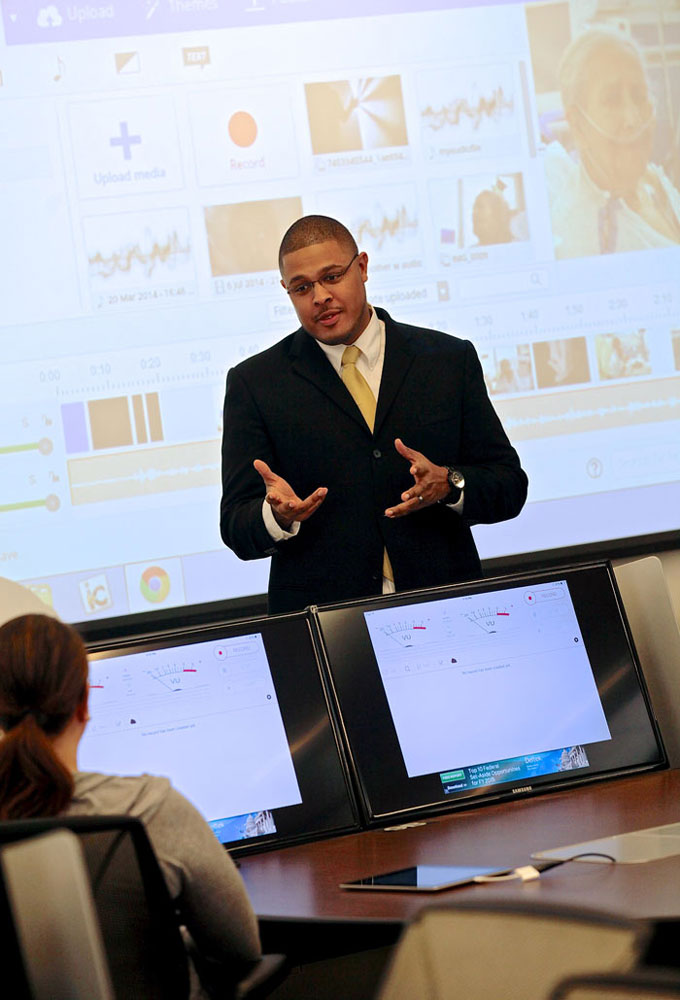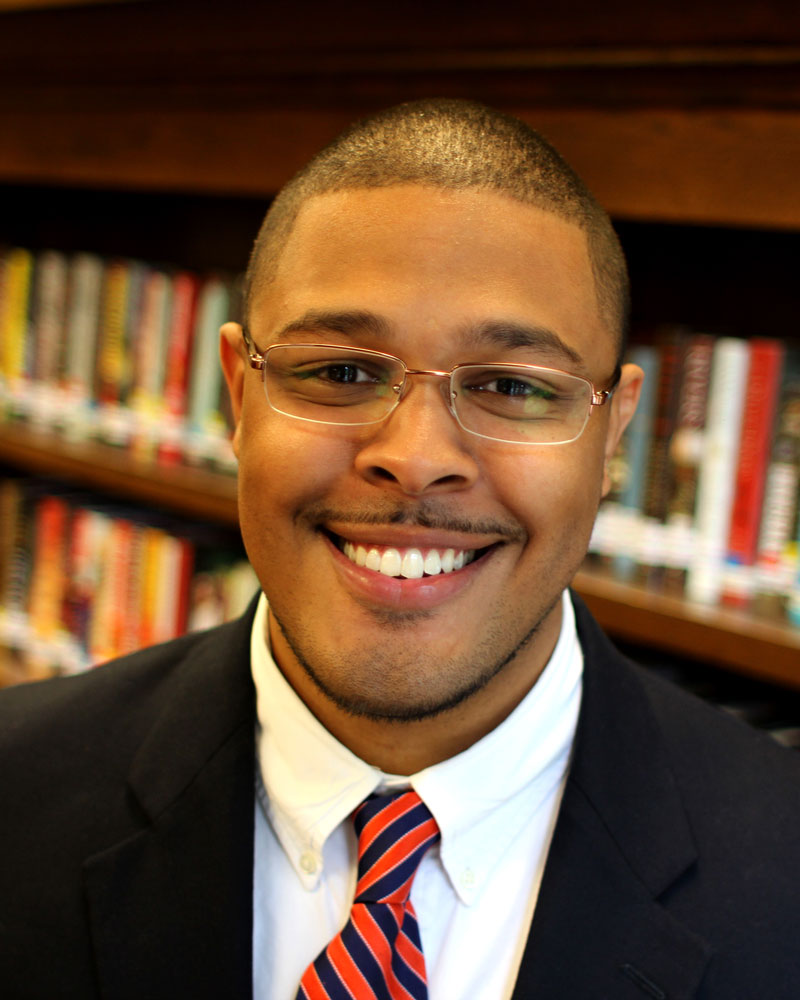The Doctor Will Hear You Now
Alumnus Kenneth Warren teaches digital storytelling to physicians
Kenneth X. Warren knows the power of story.
His grandfather, Dr. Francis M. Foster, a Richmond dentist, was known in the family as “the golden griot.”

“He was sort of the African-American historian for the city of Richmond,” says Warren (Educ ’04, ’11), who has a master’s degree and a doctorate in instructional technology from UVA’s Curry School of Education. Two generations later, Warren is carrying on his grandfather’s legacy.
Now an assistant professor at Virginia Commonwealth University, Warren teaches a graduate course that helps medical educators use digital media to tell stories. “Storytelling is a way of sharing experiences, sharing stories, communicating,” says Warren. “It’s a way to archive lived experience … My grandfather taught me how to be a good listener. He believed, as do I, that it is the listening that values a storyteller’s experience and prepares a listener for change.”
That can be particularly challenging in medical settings, where patients face medical personnel with a mixture of awe, terror, hope and confusion. Warren believes much of that discomfort can be softened by doctors who are more reflective and “in the moment,” or “meta-cognitive.”
“It’s thinking about your actions, taking on multiple perspectives, having the ability to exist not only as physicians but also be seen in the way that patients see them,” Warren explains.
Warren has two goals in teaching the medical faculty to use digital media. First, a greater fluency in digital media adds to a physician’s expanding teaching toolbox. Second, Warren says, it helps the medical educators become more thoughtful about how they present themselves to their patients which helps patients to begin to see doctors as real people.
Two of VCU’s medical faculty members who took Warren’s course last summer now require internal medicine residents in the ambulatory rotation to produce a digital story as a way to engage in reflective practice and think creatively.

“Narratives can be very therapeutic,” says Warren, who became interested in digital storytelling while at the Curry School. While a student there, Warren created a video about his relative Alice Jackson Stuart, the first African American to apply—unsuccessfully—to the University. That process helped Warren see first-hand how a powerful story, complete with compelling audio and video, can enrich understanding.
“[Doctors] experience a lot of challenges,” he says. “They have to make critical decisions rapidly on a constant basis.” Warren believes writing about the process of making those decisions and sharing them with future doctors can help the next generation confront the same emotional challenges.
Warren says he has been particularly inspired by the work of Dr. Rita Charon, founding director of the Program in Narrative Medicine at Columbia University. She believes doctors could learn to improve their practice by examining texts by authors like Camus, Tolstoy and Walt Whitman to help understand illness through the eyes of the patient.
Digital storytelling, says Warren, “is more rich and multi-modal. It’s not just reading the story on the page.” In his program, educators first create writing samples about their practice or interactions with their patients. Warren tells the story of one faculty member, a physician, who wrote a narrative about a patient who perceived her as an authority who was not present and did not care.
“This patient thought she was being inauthentic," Warren says. Telling the story, he says, made the physician feel like, “‘Wow. This is what I could have done better.’ She went through this reflective process of who she was in that moment and how she has changed and transformed.”
What began as a two-page narrative ended as a video, complete with images she used to tell the story. “The visuals take the reader on a particular emotional path,” Warren says. “Hearing the author’s voice is very powerful.”